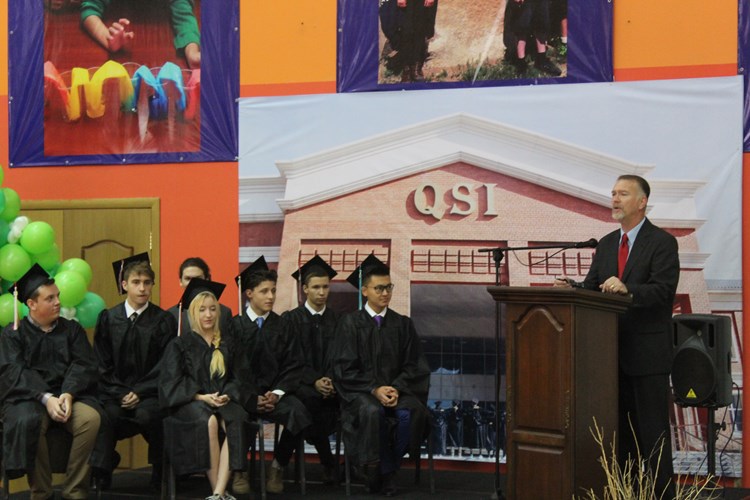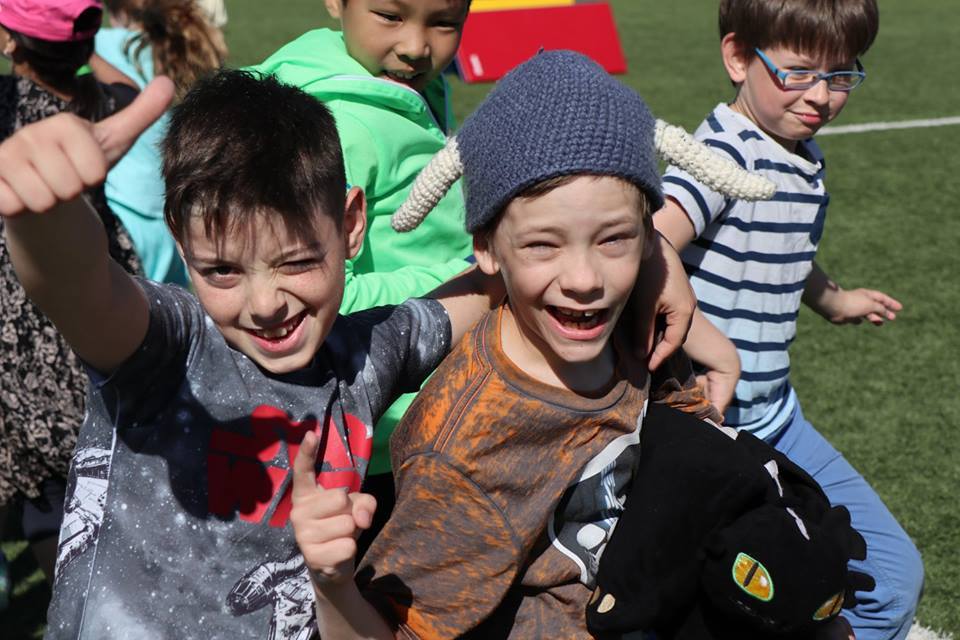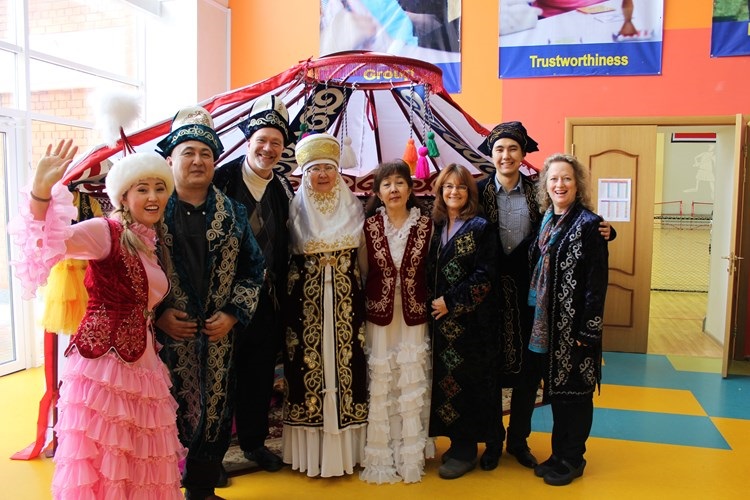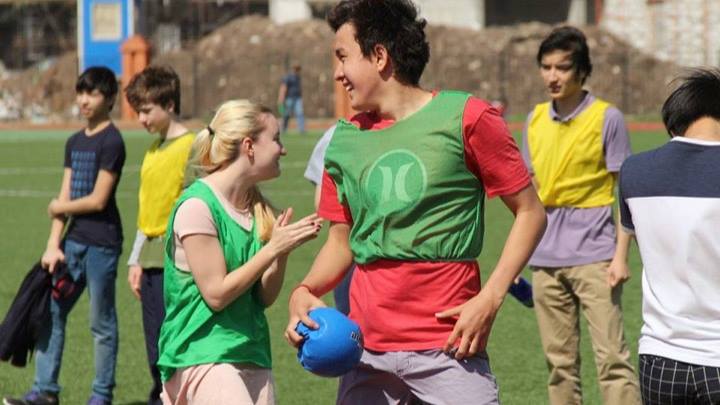ASTANA – With the new school year in full swing, The Astana Times interviewed Quality Schools International (QSI) Astana director Jay Loftin about mastery learning, teaching in multicultural classrooms and why accreditation matters.
Founded in 2005, QSI International School of Astana offers a mastery-learning programme with a curriculum similar to that of U.S. pre-kindergarten-grade 12 public and private schools. The QSI schools in Kazakhstan – Almaty, Atyrau and the capital – provide an English language education for local citizens and expatriates living in the international community.
“Like my travels, I have worked in diverse schools as well. I served private, public, boarding and national schools in Russia and Finland and now I am in my 10th year as a QSI school director. This school by far is the most interesting and rewarding I have ever served. With 37 nationalities and a group of Kazakh students who are above the U.S. average in reading, writing and mathematics, it is a phenomenal experience every year to see students graduate and go to some of the finest universities in Kazakhstan, Europe, Asia and North America,” said Loftin.
An average QSI school operates with only 170 students, as the administration maintains a small classroom size of 15 or less.
“QSI Astana is almost full serving just under 300. We serve all ages and have not only a full secondary programme, but are now an AP Capstone School offering the highest American high school diploma possible,” he said.
The school has 54 full-time faculty, including 24 teachers and paraprofessionals.
“Our teachers come mainly from North America, but we have many people who have more than one home. From Maryland, a professor of physics who is also Filipino; from Virginia, a teacher who was born in Belarus; a former rodeo star and middle school teacher who is from Oregon; a world-class ski instructor who teaches art; one family with fourteen grandchildren, two families with seven children; a kindergarten teacher from New England who is a professional bluegrass musician and QSI teachers who have come from QSI schools in as many as three other countries we serve. We have Kazakh professionals who also teach and serve our school as well as British, Indian and other nationalities in our family,” he added.
One of the school’s main advantages is the Advanced Placement programme, the highest coursework offered in U.S. high schools.
“Our students actually earn U.S. college and university credit here. We are 77 percent expatriate with a wonderful Kazakh community of 23 percent. One out of four students are native English speakers from the U.S. with a total of 30 percent from English speaking countries. Whilst most of our teachers come from public school experience, they would tell you that the small classrooms, well-defined curriculum and attention to the individual makes us successful,” said Loftin.
The school hosts family events throughout the year including fall festivals, back to school nights, author’s nights and competitions in mathematics, debate, Model United Nations and a wide variety of sports. The school also sponsors organisations that support orphanages and recently worked with youth with Down syndrome. The school is the only one in the capital with an Interact Club, a high school version of Rotary Club, the largest worldwide service organisation.
“International schools hold not only national accreditation, but should also be internationally accredited. We are Middle States Association (MSA) accredited, which is an accreditation body recognised in Kazakhstan and many international schools. We participate twice annually in MAP testing with 1,400 international schools, with our students scoring above the U.S. average at every grade level. We are also the SAT testing site,” he noted.
The school building, situated on five hectares, includes classrooms, computer labs, two science labs, two libraries with 14,000 volumes, a cafeteria, an auditorium and a large gym with two basketball courts, indoor climbing wall and numerous playgrounds.
“I have had the privilege to work in Russia, Finland and Central Europe as well as my home state of Mississippi. Coming from a hot climate, I have lived now for over 15 years in cooler and very cold climates. Astana is by far the coldest but also the brightest, bluest sky of any place I have lived. It is a fantastic and very large country. I have only begun to explore and there is so much to see,” said Loftin.
“Families find QSI the best choice because of our mastery learning approach and small classrooms,” he added. “We have very strict criteria for new students and though we are the hardest school many students have ever attended, we are usually considered the most caring. Beyond the classroom, every teacher contributes an hour weekly for an afterschool club, sports, music, arts and chess. We have a bright and beautiful campus and we start the morning with music in the great hall. We celebrate life, learning and success every day.”
Loftin noted failure is something they do not accept, because if a student is unable to do the work, her or she will be placed at the level where the individual can succeed.
“Failure is not an option. That’s why our motto is ‘Success for All’ and its model is based on a methodological and practical approach. We have U.S. students who find our school very challenging and we have Kazakh students who are superior to students who come from the U.S. We are a better school than American schools and that’s something that sometimes surprises our students from the U.S. We celebrate Kazakh culture through language. While many do go abroad and study, we are preparing Kazakhs to lead Kazakhstan and bring the world home,” he said.




